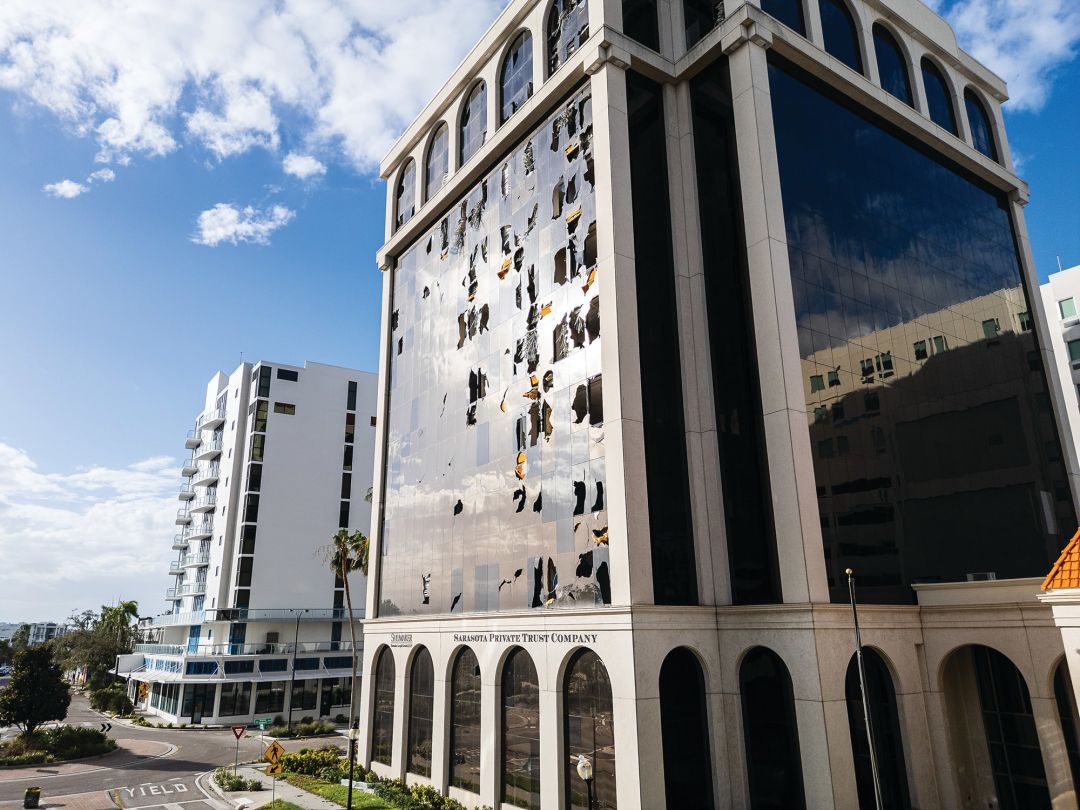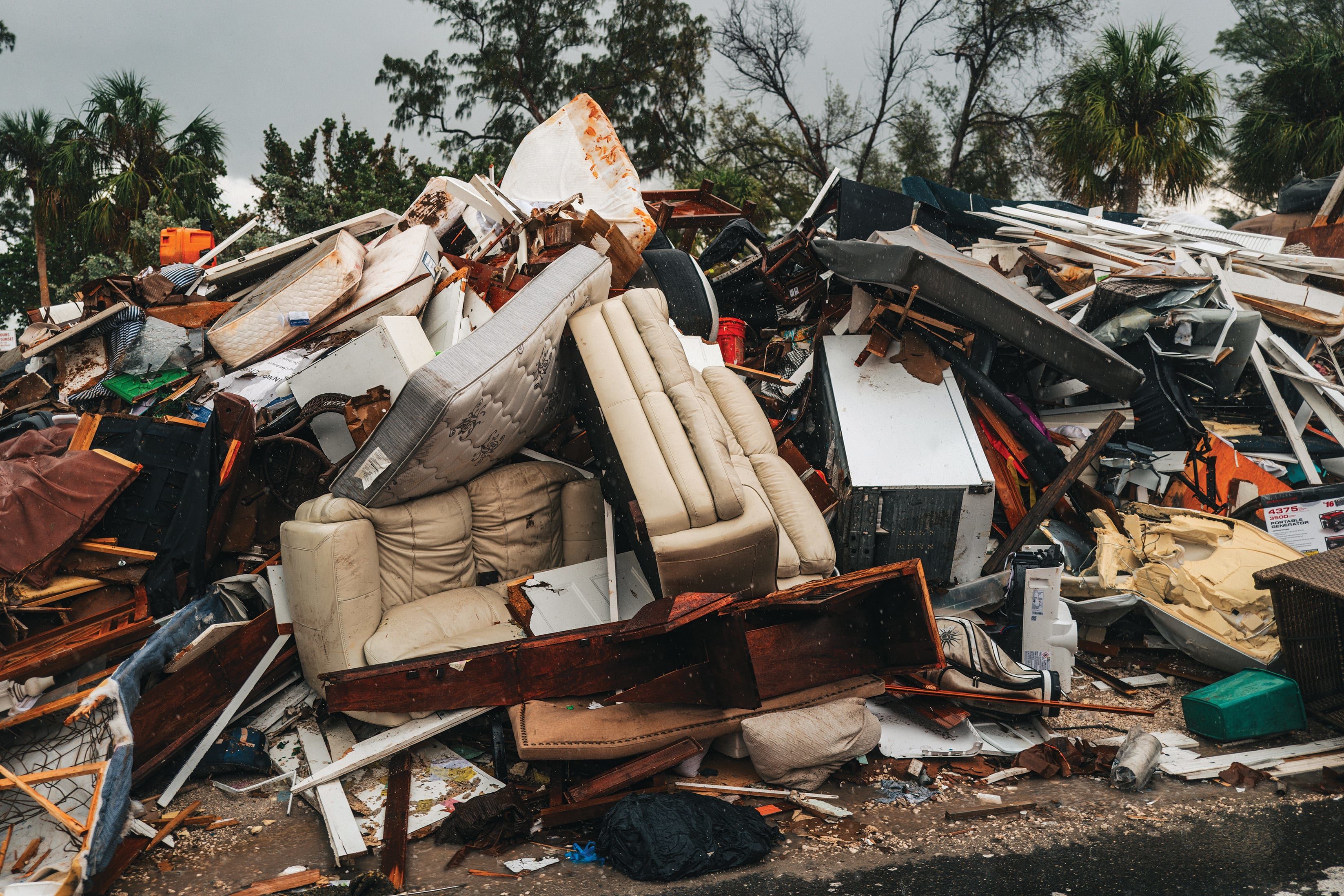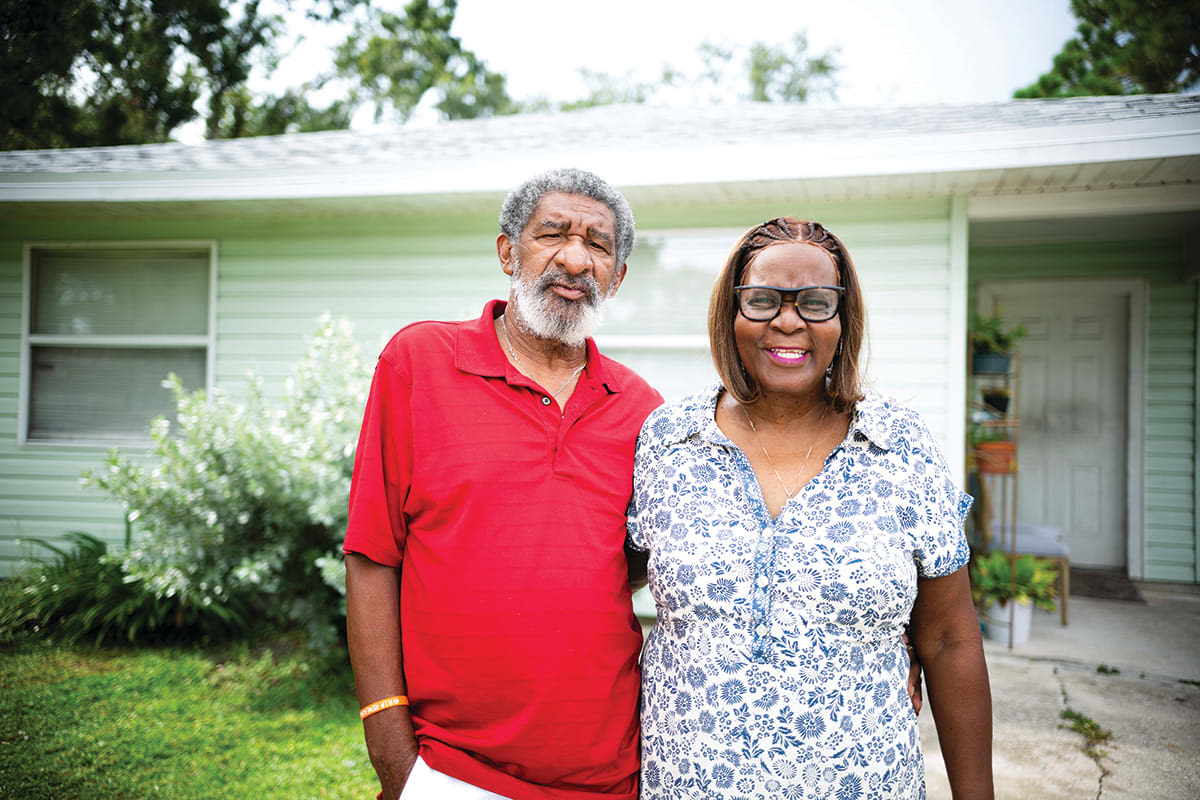Why Was There So Much Disinformation After Hurricanes Helene and Milton?

Image: Hannah Trombly
We’ve all heard the term “fake news.” But after Hurricanes Helene and Milton wreaked havoc on Florida and North Carolina this fall, the amount of fake news, or disinformation, being spread spiraled out of control. In Sarasota, a rumor that a bridge to Siesta Key had collapsed spread rapidly as Milton made landfall, while elsewhere, untruths about FEMA payouts and funding abounded, and wild theories about political parties being able to control the weather even made it into the mainstream.
How did we get here? We asked Kelli Burns, an associate professor and the director of undergraduate programs for the Zimmerman School of Advertising & Mass Communication at the University of South Florida. Burns has been researching social media for the past 18 years. Here’s what she had to say.
What is the difference between misinformation and disinformation?
“Misinformation takes a little kernel of truth and spins it in a new way. People aren’t getting the full story—it’s not factually accurate, but there is an element of truth that has been misinterpreted.
“Disinformation is straight lying—a complete untruth.”
Why is it particularly prevalent after an event like a hurricane or other natural disaster?
“The aftermath of a hurricane is a complicated situation, and it’s very difficult for people to navigate, especially if they don’t have internet access or have spotty power and cell coverage. They’re also dealing with physical damage, emotional pain and financial need, so there’s a lot going on. The capacity to process information becomes challenging, and often, they’re only picking up little nuggets of information and don’t have the time or energy to fully research [a topic] for themselves.”
Has the spread of disinformation and misinformation always been this prevalent, or is it happening more because of social media?
“It’s been happening on the fringes of society for a long time. Think back to the moon landing—people didn’t believe that at the time. But social media has brought all these opinions into the mainstream. Anybody can post anything, and conspiracy theories can be easily shared and spread.
“Plus, a lot of our social media consumption is done mindlessly. We’re often not completely engaged in everything that comes across our feed. Information can sort of wash over us. We don’t always have time to process every little statement we see, which means we come across a general perception of the way things are and we’re not always actively engaged news consumers.”
Is AI playing a role?
“Yes. There’s a lot of manipulation that can happen because people can use AI to create images and make people wonder if they’re seeing something AI-generated or real. For example, we might think an AI-generated image is true or think a real photo is AI-generated. It certainly complicates the issue.”
What are some of the real-life consequences you’re seeing?
“A lot of this is being done to stir up distrust in institutions, politicians, relief workers and meteorologists. All our trusted experts are feeling the effects of disinformation. Meteorologists were actually receiving death threats after the hurricanes.
“I see it on a local level, too. There was a rumor that 600 Haitian immigrants were living in an industrial park in Pasco County, and that needed to be debunked by the sheriff’s office. Having to make statements and go on the news and say something is not true is taking time away from [officials] being able to actually help people. All these professionals shouldn’t have to worry about managing disinformation—they should be able to do their jobs. The fact that they have to release statements, respond to comments or appear on news programs to defend their work is hurting everybody.”
What’s the best way to combat disinformation?
“Do your best to research [a topic] as much as you can outside your normal social networks. Don’t share information you think might not be true. I always do a Google search and look for trusted sources of information.
“That being said, sources that we previously considered to be trusted are being challenged. For example, FEMA now has its own rumor control website. Check information from multiple sources. We’re in an age of information overload, so go directly to government institutions’ sites, read news articles or listen to news reports. Learn as much as you can and don’t mindlessly reshare information that you haven’t fully fact checked.”



